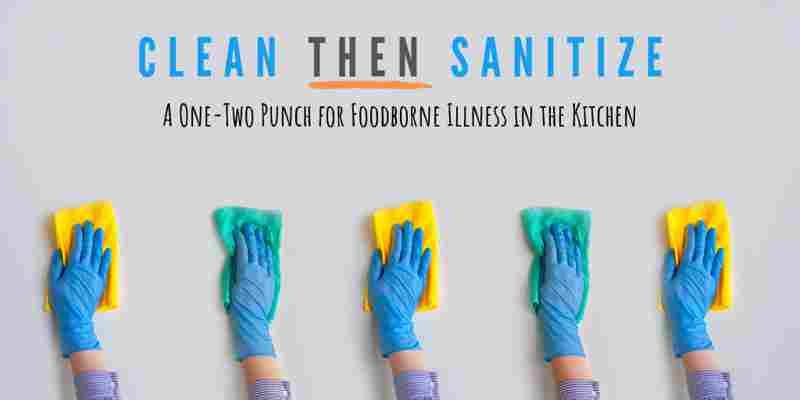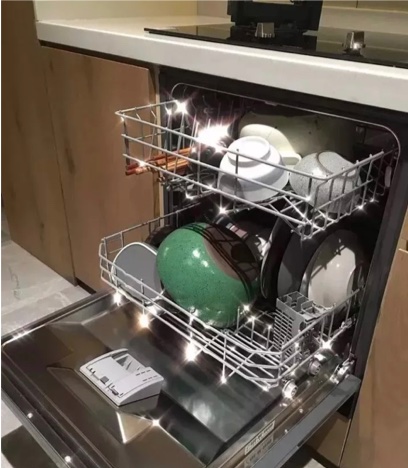Posted by Meredith Carothers, MPH, and Chrystal Okonta, MSPH, Technical Information Specialists, Food Safety and Inspection Service, USDA in Research and Science

Simply wiping or rinsing surfaces is not enough to kill harmful bacteria that may have spread around your kitchen while you were preparing food.
You’re about to sit down to a nice meal with a freshly cooked chicken breast. You have your dishes in the dishwasher and you’ve finished wiping down your surfaces. You’re done in your kitchen, right? Wrong! Whenever you cook raw meat or poultry, make sure you clean and THEN sanitize not just your surfaces but also the kitchen sink. Wiping or rinsing these areas is not enough to kill any bacteria that may have spread around your kitchen while you were preparing your food. Here’s your foolproof plan to leave your kitchen spotless and eliminate the germs you can’t see.
1. Clean FIRST.
Cleaning is an important first step to make sure you are removing bacteria that can cause foodborne illness from your kitchen. To clean your surfaces and your kitchen sink, use warm, soapy water to wash these areas. Wipe them clean with single-use or paper towels. If you use kitchen towels for cleaning, they should be washed frequently in the hot cycle of your washing machine. And don’t forget to wash your hands with soap and running water to keep them clean too.
What does cleaning do? Cleaning is the first step to get rid of bacteria from these surfaces. Foodborne-illness causing bacteria can remain on surfaces for a very long time. Campylobacter can survive in your kitchen for up to 4 hours, and Salmonella can last for up to 32 hours (and both can be found on raw poultry). Cleaning with warm, soapy water can physically remove dirt, grim and some bacteria from a surface, but it does NOT kill bacteria.
2. THEN Sanitize.
Sanitizing is the second, but equally important step to removing bacteria from your kitchen. This step will kill any remaining bacteria. Many different sanitizers can be used: an easy homemade version is to make a solution of 1 tablespoon of liquid chlorine bleach per gallon of water, or you can use a commercial sanitizer or sanitizing wipe. Pour or spray your sanitizing solution on surfaces and wipe them clean with a paper towel. Be sure they are completely dry before using those surfaces or your sink again. If using commercial sanitizers, follow the manufacturer’s instructions on the label. Some commercial sanitizers require food surfaces to be rinsed after using the sanitizer.
What does sanitizing do? Including a sanitizing step in your cleaning routine actually reduces the number of foodborne illness-causing pathogens that survive in your kitchen – sanitizing kills bacteria. However, sanitizing is most effective AFTER you have cleaned those surfaces. So, don’t skip the clean step!
Your dishwasher can also do an effective job of cleaning and sanitizing your utensils and cutting boards if they are made of materials that are non-porous (e.g. acrylic, plastic, glass, and solid wood) and are dishwasher safe. However, if you can’t or don’t want to put your cutting boards and utensils in the dishwasher, then wash them first and then use sanitizing solution to make sure they are clean AND sanitized. Pour your sanitizing solution on the cutting boards and let it stand for several minutes or use it as a soak for your utensils. Next, rinse them and air or pat them dry with clean paper towels. With these two steps, clean THEN sanitize, you can knock out any foodborne illness-causing bacteria in your kitchen!












